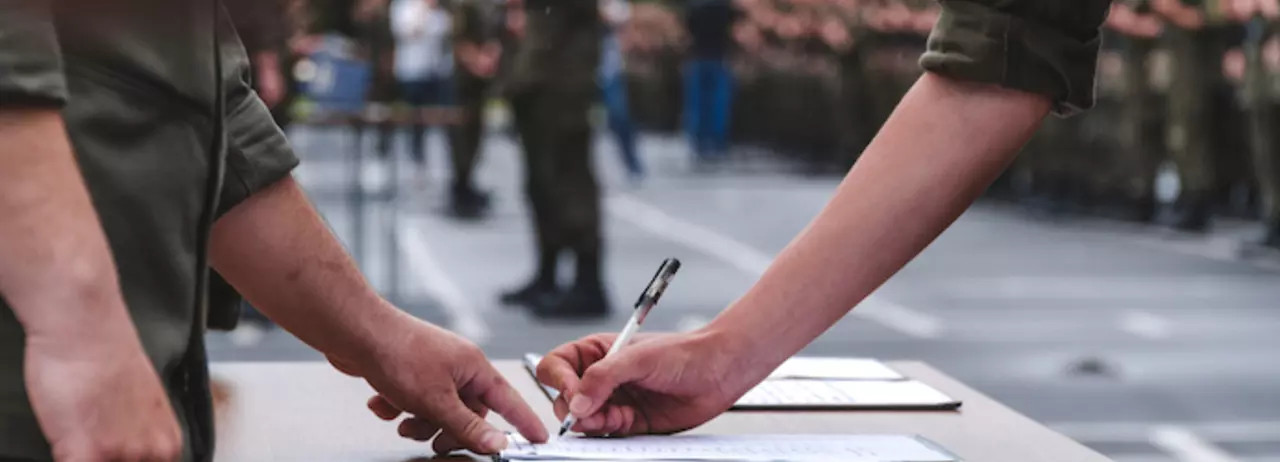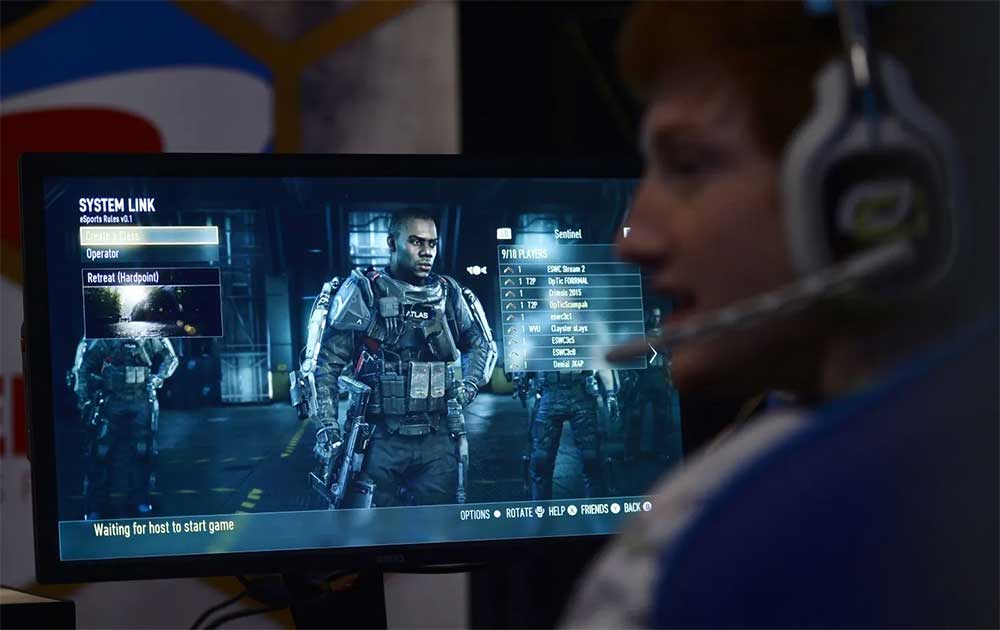 Chad Vance / Professor / William & Mary College - The Dilemma: We’ll start with two assumptions: Murder is morally wrong. Also, pedophilia (i.e., sexually molesting a child) is morally wrong.
Chad Vance / Professor / William & Mary College - The Dilemma: We’ll start with two assumptions: Murder is morally wrong. Also, pedophilia (i.e., sexually molesting a child) is morally wrong.
In the real world, the verdict is the same: Both acts are wrong. Now imagine a VIDEO GAME where the gamer’s objectives involve molesting children. Very likely, you are morally opposed to such a game, and believe they should not be made or sold. If so, then consider the following argument:
1.Committing virtual pedophilia (e.g., in a video game) is morally wrong.
2.However, there are no morally relevant differences between committing a virtual act of pedophilia and committing a virtual act of murder.**
3.Therefore,committing virtual murder in a video game is also morally wrong.
[* Note: By ‘virtual murder it is meant an act of killing that would clearly be morally wrong were it committed in the real world. For instance, in Grand Theft Auto, players control criminal characters who drive around hitting and killing pedestrians. Contrast this with, say, those versions of Call of Duty where players control U.S. soldiers whom (we may presume) are killing enemy soldiers in a just war. Assume also that the person killed in the game stays dead—i.e., they do not “re-spawn”.]
[* Why morally equivalent? Well, in the real world, both actions are seriously morally wrong. And, in the virtual world, no one is actually harmed. You’re just manipulating pixels on a screen. Initially, there don’t seem to be any obvious moral differences.]
The conclusion here is that playing games like Grand Theft Auto is morally wrong! And yet, it is one of the best-selling game franchises of all time, with Grand Theft Auto V alone having sold over 100 million copies! (source) It seems that quite a few people must believe that committing virtual murder is morally permissible.
The National Network Opposing the Militarization of Youth (NNOMY)
Articles
 Kate Connell / Fred Nadis / Antiwar.com / English - En 2016-17, el ejército de los EE. UU. Visitó Santa Maria High School y la cercana Pioneer Valley High School en California más de 80 veces. Los marines visitaron la escuela secundaria Ernest Righetti en Santa María más de 60 veces ese año. Un alumno de Santa María comentó: "Es como si ellos, los reclutadores, fueran parte del personal". Un padre de un estudiante de secundaria en Pioneer Valley comentó: "Considero que los reclutadores en el campus que hablan con niños de 14 años "preparan" a los jóvenes para que estén más abiertos al reclutamiento en su último año. Quiero que mi hija tenga más acceso a reclutadores de universidades y para que nuestras escuelas promuevan la paz y soluciones no violentas al conflicto".
Kate Connell / Fred Nadis / Antiwar.com / English - En 2016-17, el ejército de los EE. UU. Visitó Santa Maria High School y la cercana Pioneer Valley High School en California más de 80 veces. Los marines visitaron la escuela secundaria Ernest Righetti en Santa María más de 60 veces ese año. Un alumno de Santa María comentó: "Es como si ellos, los reclutadores, fueran parte del personal". Un padre de un estudiante de secundaria en Pioneer Valley comentó: "Considero que los reclutadores en el campus que hablan con niños de 14 años "preparan" a los jóvenes para que estén más abiertos al reclutamiento en su último año. Quiero que mi hija tenga más acceso a reclutadores de universidades y para que nuestras escuelas promuevan la paz y soluciones no violentas al conflicto".
Esta es una muestra de lo que experimentan las escuelas secundarias, particularmente en áreas rurales, a nivel nacional y la dificultad de enfrentar la presencia de reclutadores militares en el campus. Si bien nuestro grupo de contrarreclutamiento sin fines de lucro, Truth in Recruitment , con sede en Santa Bárbara, California, considera que ese acceso militar es más que excesivo, en lo que respecta al ejército, ahora que la pandemia ha cerrado los campus, esos eran los buenos viejos tiempos. El Comandante del Servicio de Reclutamiento de la Fuerza Aérea, el General de División Edward Thomas Jr., comentó a un periodista de Military.com , que la pandemia de Covid-19 y los cierres de escuelas secundarias en todo el país han hecho que el reclutamiento sea más difícil que antes.
Thomas afirmó que el reclutamiento en persona en las escuelas secundarias era la forma de mayor rendimiento para reclutar adolescentes. “Los estudios que hemos realizado muestran que, con el reclutamiento cara a cara, cuando alguien es realmente capaz de hablar con un [suboficial] de la Fuerza Aérea viva, que respira y con agudeza, podemos convertir lo que llamamos clientes potenciales en reclutas en una proporción de aproximadamente 8:1, dijo. "Cuando hacemos esto de forma virtual y digital, se trata de una proporción de 30:1". Con estaciones de reclutamiento cerradas, sin eventos deportivos para patrocinar o en los que presentarse, sin pasillos para caminar, sin entrenadores y maestros que preparar, sin escuelas secundarias a las que presentarse con remolques cargados de videojuegos militarizados, los reclutadores se han desplazado a las redes sociales para encontrar posibles estudiantes.
 Kate Connell / Fred Nadis / Antiwar.com / español - In 2016-17, the U.S. Army visited Santa Maria High School and nearby Pioneer Valley High School in California over 80 times. The Marines visited Ernest Righetti High School in Santa Maria over 60 times that year. One Santa Maria alumnus commented, “It’s as if they, the recruiters, are on staff.” A parent of a high school student at Pioneer Valley commented, "I consider recruiters on campus talking to 14 year olds as "grooming" young people to be more open to recruitment in their senior year. I want my daughter to have more access to college recruiters and for our schools to promote peace and nonviolent solutions to conflict."
Kate Connell / Fred Nadis / Antiwar.com / español - In 2016-17, the U.S. Army visited Santa Maria High School and nearby Pioneer Valley High School in California over 80 times. The Marines visited Ernest Righetti High School in Santa Maria over 60 times that year. One Santa Maria alumnus commented, “It’s as if they, the recruiters, are on staff.” A parent of a high school student at Pioneer Valley commented, "I consider recruiters on campus talking to 14 year olds as "grooming" young people to be more open to recruitment in their senior year. I want my daughter to have more access to college recruiters and for our schools to promote peace and nonviolent solutions to conflict."
This is a sample of what high schools, particularly in rural areas, experience nationwide, and the difficulty of confronting the presence of military recruiters on campus. While our nonprofit counter-recruitment group, Truth in Recruitment, based in Santa Barbara, California, views such military access as beyond excessive, as far as the military is concerned, now that the pandemic has closed campuses, those were the good old days. The Air Force’s Recruiting Service Commander, Maj. Gen. Edward Thomas Jr., commented to a journalist at Military.com, that the Covid-19 pandemic and high school shutdowns nationwide have made recruiting more difficult than previously.
Thomas stated that in-person recruiting at high schools was the highest yield way to recruit teenagers. “Studies that we’ve done show that, with face-to-face recruiting, when somebody is actually able to talk to a living, breathing, sharp Air Force [noncommissioned officer] out there, we can convert what we call leads to recruits at about an 8:1 ratio,” he said. “When we do this virtually and digitally, it’s about a 30:1 ratio.” With closed recruiting stations, no sporting events to sponsor or appear at, no hallways to walk, no coaches and teachers to groom, no high schools to show up at with trailers loaded with militarized video games, recruiters have shifted to social media to find likely students.
Schools have become contested territory.
 For years, getting police officers out of schools has been a central goal of racial justice campaigns. Recently, they’ve won victories in Denver, Minneapolis, Portland, Charlottesville, and even on many university campuses.
For years, getting police officers out of schools has been a central goal of racial justice campaigns. Recently, they’ve won victories in Denver, Minneapolis, Portland, Charlottesville, and even on many university campuses.
However, there’s another group of outsiders in schools we should be wary of: the U.S. military.
Since the end of the draft in 1973, the U.S. has relied on an all-volunteer service to maintain its 1.3 million-member global police force. Over the years the military has used a number of different recruitment methods, but the target audience has always been the same: high schoolers.
The No Child Left Behind Act of 2001 significantly changed how military recruiters reach teenagers. Section 9528 mandates public high schools give military recruiters the same access to students that college recruiters get, including their personal contact information. Schools became gold mines for recruiting “future soldiers.”
"It's important that our youth understand that joining the military isn't the only way to pay for college or find stability in life."
Eoin Higgins / Commondreams -
 Rep. Alexandria Ocasio-Cortez on Monday proposed blocking the military from recruiting in schools, describing the practice as a predatory attack on disadvantaged children who already suffer from underfunded resources in their learning environments.
Rep. Alexandria Ocasio-Cortez on Monday proposed blocking the military from recruiting in schools, describing the practice as a predatory attack on disadvantaged children who already suffer from underfunded resources in their learning environments.
The proposal follows an amendment to the defense spending bill from Ocasio-Cortez, a New York Democrat, last week that would ban military recruiters from using video game streaming platforms to reach impressionable young people.
.@AOC, though an amendment to the defense spending bill, is seeking to block federal funding for military recruiters in middle & high schools.
“Children in low-income communities are consistently targeted for enlistment,” she says. https://t.co/NyWPDztR9D pic.twitter.com/APta1mOJd3
— Luke Broadwater (@lukebroadwater) July 27, 2020
Gamers with the Army, Navy, and Air Force are spending hours on Twitch with children as young as 13.
 Jordan Uhl / The Nation - Have a nice time getting banned, my dude,” Army recruiter and gamer Joshua “Strotnium” David told me right before he booted me from the US Army’s Twitch channel. I had just reminded viewers of the United States’ history of atrocities around the globe, and helpfully provided a link to the Wikipedia page for US war crimes.
Jordan Uhl / The Nation - Have a nice time getting banned, my dude,” Army recruiter and gamer Joshua “Strotnium” David told me right before he booted me from the US Army’s Twitch channel. I had just reminded viewers of the United States’ history of atrocities around the globe, and helpfully provided a link to the Wikipedia page for US war crimes.
Was I undiplomatic? Sure. But if the military is going to use one of the world’s most popular platforms to recruit kids, then it shouldn’t be able to do so without some pushback. Right now, with the support of Twitch, gamers with the US military are spending hours with children as young as 13, trying to convince them to enlist.
The Army, Navy, and Air Force all stream on Twitch using dedicated e-sports teams. These teams are comprised of skilled gamers who compete in tournaments for cash prizes. While members of military e-sports teams offer the regular gaming skill set, they’re also on-screen talent and recruiters. Instead of approaching a recruiter behind a table in a school cafeteria, kids can hang out with one who is playing their favorite video games and replying to their chat messages for hours on end.
Twitch, a livestreaming platform owned by Amazon, boasted more than 5 billion hours watched from April through June. (For comparison, Netflix claims that during quarantine people have been viewing around 6 billion hours of its shows and movies a month.) A typical military stream looks something like this: A recruiter, usually a man in his 30s, sits comfortably in his gamer chair inside a dimly lit room illuminated by a monitor and the colorful LED lights of his computer tower. An American flag hangs on the wall behind his right shoulder, an oversized stuffed animal sits to his left. He’s playing Call of Duty or Valorant. He’s friendly, and talks about how much he loves being in the Army. Despite being older than most of his young viewers, he speaks like them. “It do be like that sometimes. We do have some great comms,” said a recruiter in one recent session.
The practices employed on Twitch by military e-sports teams are part of a system by which recruiters target children in unstable and/or disadvantaged situations. Recruiters take advantage of the poor seeking steady income, the vulnerable longing for stability, and the undocumented living in fear because of their citizenship status. Now, at a time when all those factors are magnified by a pandemic that has left half the country out of work and over 30 percent unable to afford their housing payments, conditions are ripe for recruiters to prey on anxious youth.







